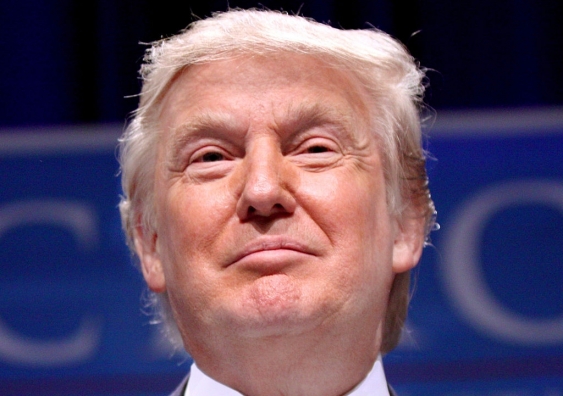Donald Trump and the paradox of globalisation
Donald Trump is winning because globalisation, and the resulting practices of American manufacturers, have eviscerated America's middle and working classes, writes Ross Buckley.
Donald Trump is winning because globalisation, and the resulting practices of American manufacturers, have eviscerated America's middle and working classes, writes Ross Buckley.

OPINION: Do you remember Carlo Giuliani? Few do. Yet his death in July 2001, shot by Italian police while protesting against the G8 Summit in Genoa was front page news world-wide because the anti-globalisation protests were in full swing. Swedish police had shot three protesters in Gothenburg; Austrian police had authorised use of live ammunition against protesters in Salzburg; and, while violence was limited at the protests against the World Economic Forum meeting in Melbourne in 2000, thousands of ordinary Australians – from university students to middle-aged suburbanites – blocked access to the event at the Crown Casino.
Indeed, protests at the WTO meeting in 1999 in Seattle had been so disruptive they contributed to the failure to launch the trade round there and to its subsequent launch at Doha. Major protests were scheduled for the IMF/World Bank meetings in September 2001, and then the Twin Towers fell, and the protests were cancelled. Later attempts were made to restart the protest movement but the focus of world media had turned to terrorism, and the protests against globalisation lost traction.
Yet globalisation continued apace, and now has had effects no one could have predicted – the political rise of Donald Trump. His victory in the Super Tuesday primaries this week can be principally attributed to the impact of globalisation upon ordinary Americans; and yet, paradoxically, no other candidate's positions are as likely to lead to a trade war and a reduction in globalisation as The Donald's.
Trump didn't win because of his policies, for he has none, but merely slogans. He didn't win because of his record of political leadership, as he has none of that either. He didn't win because he's some sort of American everyman, because he isn't. Americans tend to be courteous, considerate and polite. Trump is rude, boorish and crass. And he certainly didn't win because of his hair.
Trump is winning because globalisation, and the resulting practices of American manufacturers, have eviscerated the middle and working classes in America. Well-paying manufacturing jobs in much of middle America have moved abroad and been replaced by low-paid jobs in services. People with satisfying jobs making things and earning $25 an hour have had to take jobs as shop assistants or cleaners at $8 an hour. The book The Great Unwinding, by George Packer, tells the painful story of families and entire neighbourhoods devastated by unemployment or full-time jobs that pay below the poverty line.
Trump is winning Republican primaries because he is the only Republican candidate voicing the pain of Americans who have lost their well-paying jobs, their financial security and their sense of self and who are Mad As Hell about it. He doesn't have policies to help them, but he articulates their profound rage at the establishment, and he speaks to them, when most of the elite ignore them.
Another paradox is that this billionaire, who began life with hundreds of millions of dollars from his father, has somehow become the people's champion. Latin America of late has had a string of presidents who are of the people: Lula da Silva in Brazil, Hugo Chavez in Venezuela, Jose Mujica in Uruguay, and others who have come from humble backgrounds to lead their countries. That ordinary people in those countries feel these people understand and can represent them makes sense. That ordinary Americans think Trump understands and represents their interests makes no sense. Yet, such is the anger in the US, and so contemptuously have the Establishment overlooked those who live in "flyover land", that the end result is a Donald Trump.
A presidential contest between Trump and Hillary Clinton now looks likely: a contest between a poorly qualified and very well qualified candidate and between a person who gives voice to the pain and grief of a sizeable section of the community and a person who is often deeply distrusted.
It all makes for fascinating theatre but the potential effects on global prosperity and security of an actual Trump presidency are the stuff of nightmares. While virtually no one remembers Carlo Giuliani, whatever the outcome in November, it will be a long time before anyone forgets Donald Trump.
Ross Buckley is Scientia Professor of Law at UNSW.
This article was first published in Fairfax Media.